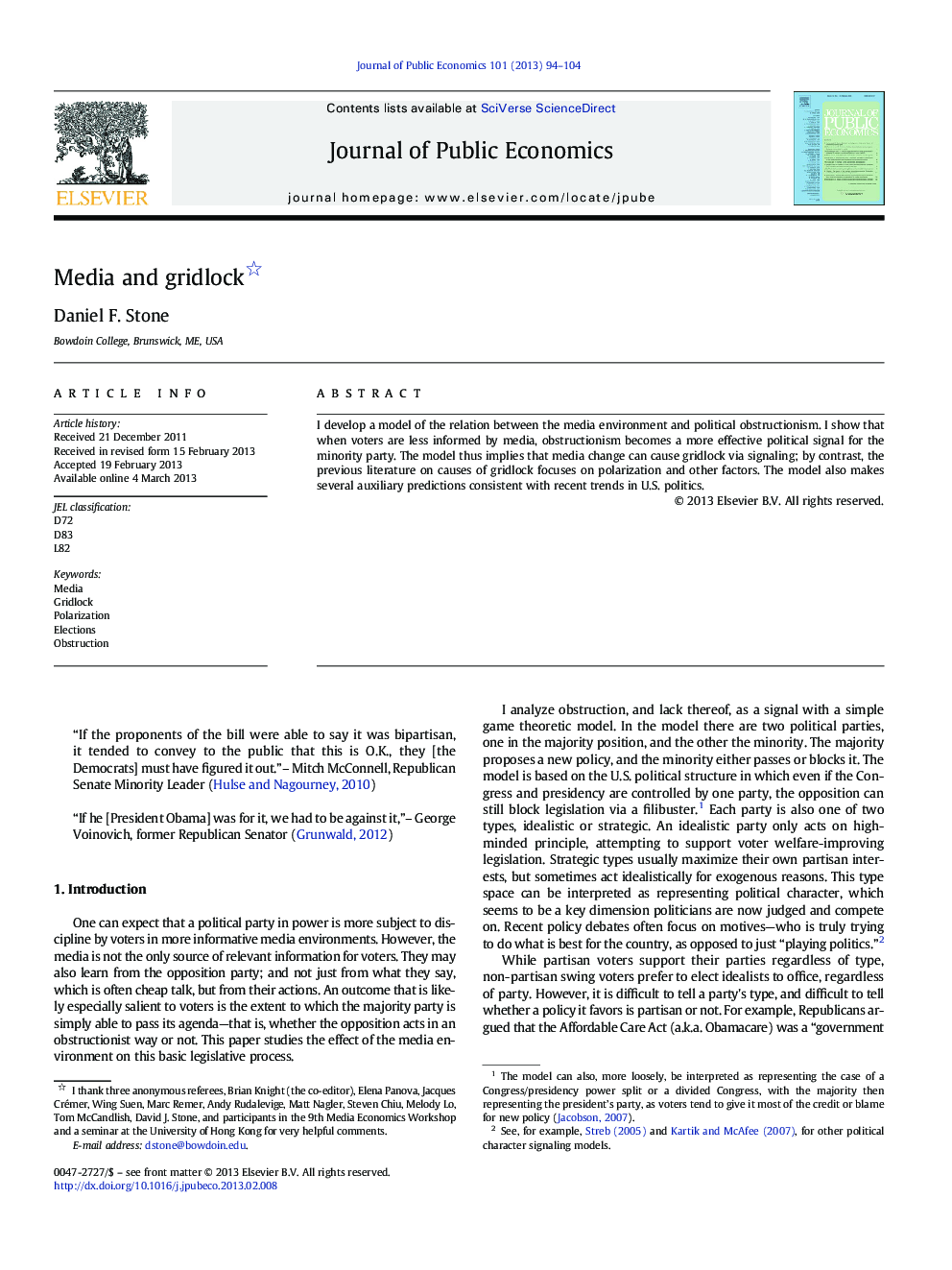| Article ID | Journal | Published Year | Pages | File Type |
|---|---|---|---|---|
| 969716 | Journal of Public Economics | 2013 | 11 Pages |
•I show that less informative media can cause strategic political obstructionism.•This theory for gridlock is novel, as previous literature focuses on polarization.•I argue gridlock and other U.S. political trends are caused partly by media change.•In particular, gridlock may worsen political reputations, which then exacerbate gridlock.
I develop a model of the relation between the media environment and political obstructionism. I show that when voters are less informed by media, obstructionism becomes a more effective political signal for the minority party. The model thus implies that media change can cause gridlock via signaling; by contrast, the previous literature on causes of gridlock focuses on polarization and other factors. The model also makes several auxiliary predictions consistent with recent trends in U.S. politics.
